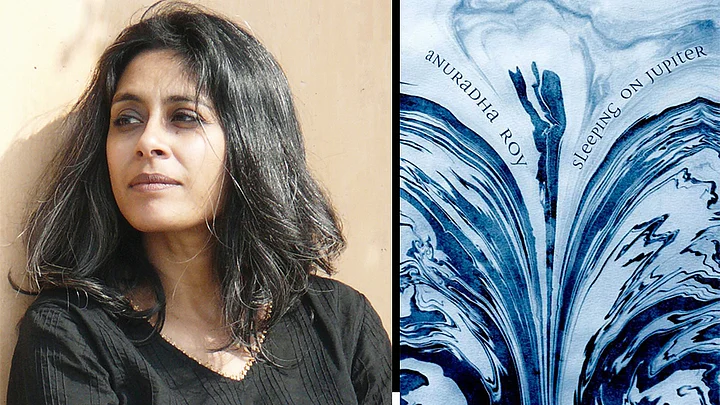I discovered Anuradha Roy’s Sleeping on Jupiter earlier this summer, while on an unhurried stop-over at a nondescript small town in the Kumaon hills – a location serendipitously similar to the locales Roy chooses for her stories.
The quietude of the hills was the exact counterpoint to the violence that the reader encounters even in the first few pages of the book. Coming at a time when Indian writing in English is sharply divided between the literary and the commercial, Roy’s latest book achieves the near-impossible.
It infiltrates into the territory of the popular – small-town lives, everyday struggles, enigmatic heroines with a dark past – and creates magic in lyrical, measured prose.
Of Idyllic Worlds, Ravaged By Sexual Violence
Set in the fictional temple-town of Jarmuli, Roy’s narrative spans a period of five days. In a prologue that stands out of time, in a nameless, undated place, the reader is introduced to a young child – a girl, six or seven years old. She seems to have been pulled out of a child’s drawing of the perfect family – there’s a hut, fenced in with trees laden with fruit, a father who goes out to work, and a mother who tends to her children.
This idyll is ruthlessly torn apart with the mention of a war and the gruesome murder of the girl’s father. The child is subsequently abandoned by her hapless mother and taken to an ashram run by a characteristically enigmatic Guruji. What follows is a tale that has become only too common in contemporary India – exploitation and child sexual abuse. The plot picks up years later when Nomita, adopted by a Norwegian mother, returns to Jarmuli to piece together her past and achieve some kind of closure.
A Suffocating World and an Escape Route to Jupiter
As is typical of her writing, Roy creates a varied cast of characters and juxtaposes the urbane against the decidedly simple, the conflicted against the complacent and, in that classic binary, the old against the young.
In her temple town, desire lurks under the skin of fastidious morality. A temple guide falls in love with a tea stall boy while a cameraman, burdened with a failed relationship, takes solace in a constant fog of alcohol and drugs. Both, in their own ways, silently suffer loss and hopelessness.
A group of three women, older, not particularly wiser, deals with their own intimations of mortality. The sameness of everyday, the tedium that seems to infect the lives of everyone in Jarmuli can be escaped only in fantasy, in a child’s dream of “living on Jupiter and sleeping under its many moons”.
Roy tackles the disturbing subject of child sexual abuse with incredible clear-sightedness. She lets the reader crawl into the tunnel-like perspective of Nomi, the pre-pubescent girl, and experience the revulsion and irreparable loss of innocence that she is made to suffer at the hands of those who were pronounced her protectors.
Trauma and the consequent search for an alternate self becomes a dominant theme in the book. A character who resurfaces from Nomi’s past refuses to acknowledge his older self and instead re-constructs a whole new history for himself. Those who have been beaten down – physically and spiritually – try to find salvation in love and song. And fail.
Roy’s insistence on the long shadows that abuse casts is scarily accurate.
In this bleak vision of the world, Jarmuli is the microcosm where freedom can be attained only at the cost of sacrifice. There is no closure. There is no end. There is only the vague promise to the self of someday escaping to Jupiter and sleeping under its many moons.
For its searing honesty, for its ability to pose uncomfortable questions, for its tender handling of unnamed, unrequited love, for skilfully representing the post-postmodern condition and for writing that is in equal parts clever and moving, go give her the Booker already.
Published by Hachette India, Sleeping on Jupiter is priced at Rs. 499.
(Saloni Sharma reads an absurd number of books each year and is hopeful it’ll become a paying profession some day. Meanwhile, she teaches Literatures in English at Kirori Mal College, DU.)
(At The Quint, we question everything. Play an active role in shaping our journalism by becoming a member today.)
